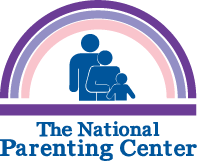Talking to Kids About Racism
The protests in response to the killings of George Floyd, Ahmaud Arbery and Breonna Taylor have elicited questions from children of all ages, and many parents are left wondering how to respond.
| Children are like sponges. They soak up news headlines and images of unrest on TV and social media. They may also be keenly attuned to conversations about current events happening at home. Parents and educators alike (and those of us now wearing both hats) should address questions about racism that arise and maintain an open dialogue with children. To help navigate the best way to do this, I asked Christiana Cobb-Dozier, a school counselor in Los Angeles, and Christian Robinson, a Sacramento-based author and illustrator of children’s books, about how to should talk to children about racism. Here’s what they said:
1) All parents should talk to their children about racism. “We don’t talk about race and disparities and inequity enough,” said Ms. Cobb-Dozier. Too often, the burden of talking about race falls to the parents of black children. Mr. Robinson, who grew up in Los Angeles, said that as a black child, race was always talked about in his family. “I wouldn’t even call it a topic of discussion, it was just discussion,” he said. “We should all be having conversations with our children that the color of your skin in this country, specifically, will dictate your experiences in the world,” Ms. Cobb-Dozier said. There are ways to broach the topic of race with children at every developmental level, even with kids as young as 2. It’s important to follow their lead. If children approach their parents ready to talk about race, it’s a good sign that they are ready to talk about it. “If they’re asking about it, they’re ready to know about it,” Ms. Cobb-Dozier said. 2) Be honest with yourself and with your children. When talking about racism, it’s important for parents to also check their own thoughts for biases, unconscious or not. One way of rooting out unconscious biases, Mr. Robinson said, is to use the power of imagination, an idea he heard while giving a talk with the founders of Abundant Beginnings, a school in Oakland. “Imagine that for some people, there’s a fairy that lands on your shoulder. And that fairy is called racism,” he said. “And it will say something from time to time in your ear, like, ‘Don’t trust that person,’ ‘You should cross the street,’ ‘You should be afraid.’ You got to recognize these things as thoughts. And I think that’s a good practice for young people to be working on.” 3) Have diverse books around for children to read. Ms. Cobb-Dozier, who is black, talked about the experience of having two black godchildren. She said, “I’m constantly sending them affirmation coloring books or poems that will remind them as they are growing up about the beauty of who they are and the resiliency of their people.” She recommends the following books: “Black Is a Rainbow Color,” “Last Stop on Market Street,” “Each Kindness” and “Stamped: Racism, Antiracism, and You.” 4) Allow for questions even when you don’t know the answers. You may not have the answers to questions like, “Why is this happening?,” but it’s important to hold space for them and explain how you feel, nonetheless. “Brace yourself. Be ready for their response and just be with them,” Ms. Cobb-Dozier said. “If they’re crying, hold them and tell them you’re sad, too.” Every Sunday on Instagram and YouTube, Mr. Robinson posts a new “Making Space” video, a personal project he started during the pandemic as an outlet for creativity. Each episode features a theme with the most recent one being anger. It’s his way of encouraging creativity in children, too. “Creativity was the thing that got me through a lot of hardships and helped me process the world around me,” he said. “Children may not have much control over the world around them, but they can have some say over the world they create on the page with their imaginations.” 5) If speaking with black children, let them know their lives matter and encourage their whole identity. The message of Mr. Robinson’s latest book, “You Matter,” is one his grandmother, who raised Mr. Robinson, his older brother and two cousins in a one-bedroom home, instilled in him from an early age. Drawing became a way for him to make space for himself and to create the kind of world he wanted to see. The message he wants to send to young people, he said, is simple. “Your life doesn’t matter just because of how big or important you are. It’s not about how great your grades are or how many trophies you won. You matter just because you exist. Because you’re here.” |
To write to TNPC’s Reader’s Corner CLICK HERE



